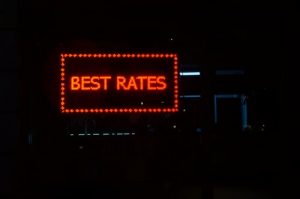By reading this, you are possibly one in each of the heaps of accountable homeowners who pay their loan on time every month, but are still “upside-down”. This means that you owe even more than your home is worth. And you’ve got heard of human beings refinancing their homes to shop money, however, their financial institution says they can not refinance their houses. We have heard this story many times since the contraction of the real estate market in 2008 and 2009.
To help homeowners like you, the Federal Housing Finance Agency (FHFA) has put in place a program that allows you to take advantage of historically low-interest rates and save hundreds (if not thousands) of dollars a year on your property mortgage without having to pay. especially for the bank. The Affordable Housing Refinancing Program (HARP) is one of the few financial bailout programs. To understand why HARP is a great choice for some homeowners, we will further explain in detail what HARP is, who is qualified to benefit from it, and the benefits of this program.
Why should you consider refinancing with HARP?
Let’s say that when you bought your house, it was worth $300,000? He made a down payment of $ 30,000 and started paying a mortgage of $280,000 per month with an interest rate of around 6%. It was a good course at the time, but the Great Recession arrived and housing prices fell. As a result, your $300,000 home you owe $280,000 is worth $230,000. Without your guilt, you are now upside down on your mortgage. Mortgage lenders also call this situation “underwater”. Nothing you did got you there, but it did.
Now your bank is offering an even lower interest rate on your mortgage of 4%. Your monthly payment would drop considerably and you could pay off your mortgage much faster! But the bank does not allow you to refinance at this lower interest rate unless you tell the difference between the value of your home today and the amount you currently owe, which is more than the US $60,000.
This is where HARP comes in. Qualified homeowners can refinance their homes to take advantage of historically low-interest rates without having to compensate for the difference between the current value of their home and the bad value. As a result, homeowners who have their mortgages underwater but make their payments on time can save tens of thousands of dollars over the life of their mortgage.



